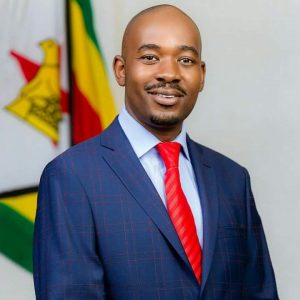Speaking at the historic Oxford Union at the University of Oxford in the United Kingdom on Monday, Chamisa described the forthcoming polls as the most crucial since the 1980 elections when Zimbabwe attained its independence from Britain.
“This is an election to move from the liberation promise to the transformation promise. This is an election to see young people playing a role to fulfil their historical and revolutionary mandate to transform Zimbabwe into a modern state,” he said.
“We want to see accountability in terms of the Zimbabwe Electoral Commission, which is supposed to be independent, but is not entirely independent. We want to see put in place the auditing of the ballot paper, a source of contestation in the past, and the auditing of the Biometric Voter Registration (BVR) system,” he said.
Beginning this year, Zimbabwe will use BVR in place of its much-contested electoral voters roll administered by the Registrar-General’s office. If implemented in line with international best practice for voter registration such as inclusivity, transparency, accuracy, integrity, sustainability, comprehensiveness, and security of data, the BVR will result in a clean, comprehensive and credible voters’ roll with no duplicate names and will minimise multiple voting, says the Zimbabwe Election Support Network.
Chamisa also called for an international observer network comprising African countries as well as those from the rest of the world “to support the initiative for a free and fair election”.
On whether there was sufficient time to see through the needed reforms, Chamisa said: “Is three months enough? It’s not a question of time but of political will, and what we’ve seen is that there’s no political will on the part of President Emmerson Mnangagwa”.
The challenge of delivering a credible election lies at the heart of resolving the questionable legitimacy of the Mnangagwa government, which succeeded former President Robert Mugabe’s administration following military intervention in November last year, leading to Mugabe’s resignation.
But analysts have asked what would happen if the elections fail the credibility test.
“The general assumption seems to be that elections that are acceptable, regardless of the winner, will resolve all the problems, but what if the elections fail the test?,” wrote Ibbo Mandaza and Tony Reeler in The Zimbabwe Independent recently.
They highlighted key steps to level the electoral playing field following the November 2017 military coup, including: security secrtor containment; traditional leaders containment; impartiality of ZEC; media reforms; full citizenship participation; comprehensive monitoring, and a peace-keeping force in the event of “possible post-election fallout, attempts at another coup, and the kind of violence that was unleashed in 2008”.
Post published in: Featured


